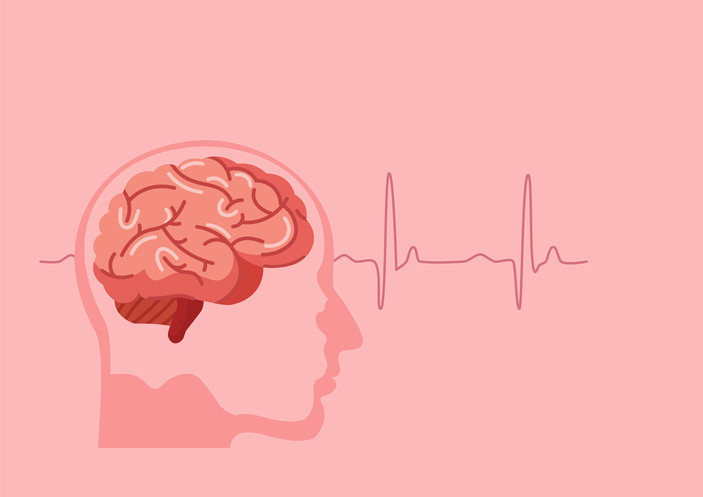
Counting steps is good — is combining steps and heart rate better?

Appendix pain: Could it be appendicitis?

Can saw palmetto treat an enlarged prostate?

How does Ozempic work? Understanding GLP-1s for diabetes, weight loss, and beyond

Zinc: What it does for the body, and the best food sources

Respiratory health harms often follow flooding: Taking these steps can help

Tips to leverage neuroplasticity to maintain cognitive fitness as you age

Can white noise really help you sleep better?

Celiac disease: Exploring four myths

What is prostatitis and how is it treated?
Heart Health Archive
Articles
Is there such a thing as a silent stroke?
It is possible to experience a stroke without symptoms. Addressing cardiovascular risk factors can help lower the risk.
Seasonal changes and blood pressure
Some people with borderline high blood pressure have higher readings during winter, even high enough to need medicine to control it. In spring or summer, they might be able to reduce the dose or stop taking the medication. Losing excess weight and cutting back on salt also can help.
Don't fail your heart health
The most common type of heart failure in older adults is heart failure with preserved ejection fraction. This is caused by the heart's left ventricle not being able to relax, which means less blood enters the chamber, so less gets pumped out. Prevention and treatments continue to evolve, but include controlling blood pressure, addressing weight gain with exercise and diet, not smoking, and curbing alcohol intake.
FDA urges the food industry to cut back on salt
The FDA called for the food industry to voluntarily cut the amount of sodium in processed, packed, and prepared foods. Those products provide about 70% of the sodium in the typical American diet.
Chemical in plastics and personal care products linked to heart disease
Exposure to chemicals called phthalates, found in commonly used plastics, may be linked to a higher risk of dying from cardiovascular disease.
Low-dose aspirin: Little benefit for people without prior heart attack
A draft guideline from a national panel of experts recommends that people without heart disease who are 60 and older should not take low-dose aspirin to prevent a heart attack or stroke.
What's the best blood pressure target for older adults?
For people over 60, aiming for a blood pressure target below 130/80 mm Hg may prevent more cardiovascular problems than aiming for the higher target suggested by some physicians. Some feared that the more intensive treatment required to reach the lower target might cause more adverse side effects (such as dizziness and falls) in older people. But side effects do not appear to differ among people taking intensive versus standard therapy.
Living with stable angina
For people with stable angina, which occurs in about two-thirds of people with heart disease, optimal medical therapy is almost always the best treatment. It includes all the medications a person needs to get cholesterol, blood pressure, and blood sugar into a healthy range. Certain medications, including beta blockers, calcium-channel blockers, and nitrates, also help relieve the discomfort of angina.
How a sugary diet may sabotage your heart health
Reducing added sugar in sweetened beverages and packaged foods may help reduce obesity, diabetes, and heart disease in the United States, which could lead to substantial health care cost savings. Most of the added sugar in the typical American diet comes from sugary beverages, which add extra calories that have no nutritional advantages and may contribute to weight gain. Replacing sugar with artificial or non-nutritive sweeteners is one popular option, but it's not clear that eating such products offers any health advantages. A better option would be to substitute fresh, whole foods such as fruit for processed junk food and to drink sparkling water with a splash of juice instead of a soda.
Types of aortic valve problems
In aortic stenosis, the heart's aortic valve narrows and can't open fully. In aortic regurgitation, the valve doesn't close properly. The cause may be present at birth (congenital) or acquired later in life, and the problems can occur alone or together.

Counting steps is good — is combining steps and heart rate better?

Appendix pain: Could it be appendicitis?

Can saw palmetto treat an enlarged prostate?

How does Ozempic work? Understanding GLP-1s for diabetes, weight loss, and beyond

Zinc: What it does for the body, and the best food sources

Respiratory health harms often follow flooding: Taking these steps can help

Tips to leverage neuroplasticity to maintain cognitive fitness as you age

Can white noise really help you sleep better?

Celiac disease: Exploring four myths

What is prostatitis and how is it treated?
Free Healthbeat Signup
Get the latest in health news delivered to your inbox!
Sign Up











